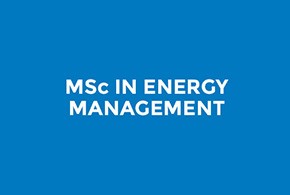| |
| |
|
Editorial
We’re thrilled to share that our MSc in Energy Management (MEM) has been re-accredited by the Energy Institute (EI) until 2029 as a Learning Affiliate Member. This recognition highlights the strength and relevance of our curriculum, our commitment to academic excellence, and our close alignment with industry needs - reaffirming ESCP’s commitment to shaping the next generation of energy leaders. Read more here.
Upcoming Event:
London Campus Open Day: Our doors are opening on 18 October for everyone to discover the undergraduate and postgraduate programmes offered at ESCP London Campus. More information can be found below.
Research:
We're pleased to share our latest working paper, "Concentrated Solar Heat for Oil Refineries: Cutting Emissions, Not Performance", authored by ESCP Alumnus Julian Ignacio Prieto Prieto, Drilling Engineer at Ecopetrol and recipient of the MSc in Energy Management Class of 2024 Best Thesis Award. Read more here.
Energy Programmes at ESCP:
Admission process for the 2026 intake of our MSc in Energy Management is open. To find out more about the specialisation, please click here.
Our Executive Master in Future Energy is accepting applications for the February 2026 intake. For more information on the programme, click here.
Finally to keep-up-to-date on all activities at the Centre, we invite you to join our LinkedIn group Energy Management @ ESCP Business School.
|
| |
|
| |
|
Events
|

|
Our doors are opening this October for everyone to discover the undergraduate and postgraduate programmes offered at ESCP London Campus.
Discover the London Campus at our next Open Day and find out why London is ranked the best city in the world for university students and future business leaders.
Learn about student life from our current students, student support services, as well as representatives from our European campuses (London, Paris, Turin, Madrid, and Berlin).
Agenda
13.30 - Dean's Welcome Address
14.00 - Masterclass Lecture
14.45 - Bachelor in Management + MSc/MBA Panel and Q&A
|
|
Energy Programmes
|

London - Paris - Internship
|
|

|
|
|
|
|
Our Mission
|

|
|
The EMC Advisory Board
|

The EMC Advisory Board is comprised of top energy experts from the world's industry leaders in both the public and private sectors.
- The curriculum of the MSc in Energy Management, ensuring the specialisation meets the needs of participants on academic and professional levels.
- Research that makes significant impact on best business practices.
- Current and future activities which benefit the EMC's partners, affiliates, students and alumni.
|
|
|
Research
|
EMC Working Papers
Decarbonising Steam: A Strategic Imperative for the Oil Refining Sector
Steam is the lifeblood of petroleum refineries, powering turbines, heating, and driving critical processes—yet generating it consumes up to 30% of a refinery's energy and accounts for roughly a third of its greenhouse gas emissions. Conventional steam production, reliant on fossil-fuelled boilers, is challenging to decarbonise without significant capital expenditures, and rarely yields meaningful emission reductions. With such a sizable environmental footprint, the pressing challenge is clear: how can refineries sustainably produce steam at scale? This article explores a compelling answer—concentrated solar thermal (CST)—and evaluates its potential to transform Colombia’s refinery sector, making efficiency and sustainability not just aspirational goals, but achievable realities.
|
|
EMC Working Papers
1. Introduction
The European Union (EU) is navigating a transformative period in its energy landscape, driven by the urgent necessity to tackle climate change and ensure sustainable energy security. As the world increasingly recognizes the dangers of climate disruption, the EU has positioned itself at the forefront of global efforts to reduce carbon emissions and foster a clean energy transition. In line with the ambitious European Green Deal, which aims to make Europe the first climate-neutral continent by 2050, the EU has set a bold target: achieving at least 42.5% renewable energy consumption by 2030, with aspirations to reach 45% [1]. Here's a concise summary of the current and upcoming trends in renewable energy demand and requirements across Europe. One of the upcoming requirements for Europe is the need to address seasonal variations in renewable energy production. Renewable sources, such as wind and solar, are inherently intermittent, leading to fluctuations in energy supply. This intermittency poses challenges to grid stability and energy security, especially during periods of low wind or solar generation. Converting offshore wind energy into hydrogen for storage can provide a flexible and reliable solution for energy supply, especially during periods when wind production is low or when demand peaks. Conveying current trends of renewable energy demand and upcoming trend requirements using Europe’s electricity base load with modular nuclear power plants, an Ultra High Voltage Transmission Line is used to transfer renewable energy long distances. Converting offshore wind production may concentrate on hydrogen storage in seas for upcoming seasonal issues caused by renewable energy, and finally Vertical Integration, Customer-centric, acquiring the energy from suppliers through Power Purchasing Agreements (PPAs).
|
|
|
| |
|



















